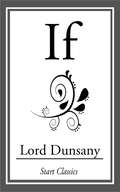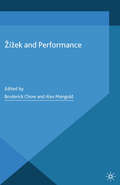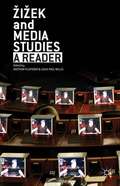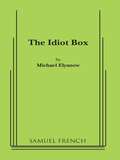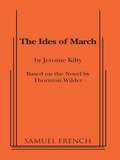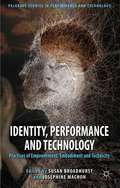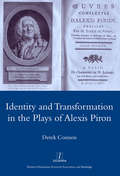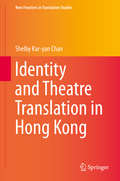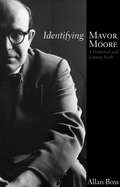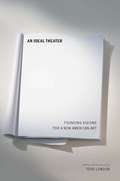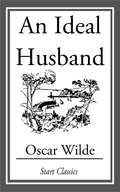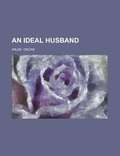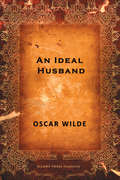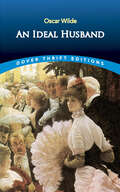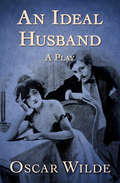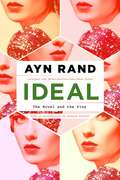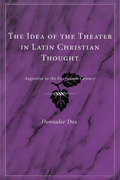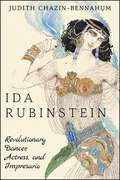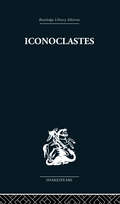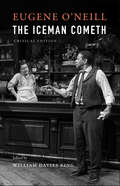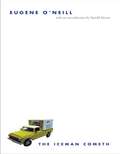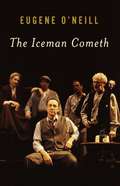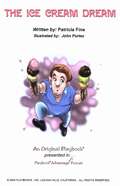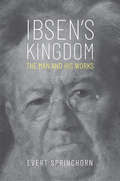- Table View
- List View
If
by Lord DunsanyEdward John Moreton Drax Plunkett, 18th Baron of Dunsany was an Anglo-Irish writer and dramatist, notable for his work in fantasy published under the name Lord Dunsany. More than eighty books of his work were published, and his oeuvre includes hundreds of short stories, as well as successful plays, novels and essays. Born to one of the oldest titles in the Irish peerage, he lived much of his life at perhaps Ireland's longest-inhabited home, Dunsany Castle near Tara, received an honourary doctorate from Trinity College, and died in Dublin.
Žižek and Performance (Performance Philosophy)
by Broderick Chow Alex MangoldThe first edited volume to examine philosopher Slavoj Žižek's influence on, and his relevance for, theatre and performance studies. Featuring a brand new essay from Žižek himself, this is an indispensable contribution to the emerging field of Performance Philosophy.
Žižek and Media Studies
by Matthew Flisfeder Louis-Paul WillisFilm, media, and cultural theorists have long appealed to Lacanian theory in order to discern processes of subjectivization, representation, and ideological interpellation. Here, the contributors take up a Zizekian approach to studies of cinema and media, raising questions about power, ideology, sexual difference, and enjoyment.
The Idiot Box
by Michael Elyanow6m, 4f / Comedy / Interior / THE IDIOT BOX tells the story of six sitcom characters whose lives are shaken when reality crashes into their perfect world. As the artifice of their lives unravels, each character discovers powerful truths about race, love, sexuality and the America outside they never knew existed - resulting in a theatrical experience that, according to The Hollywood Reporter, "is a glittering absurdist farce...with a sinister undertow that takes hold early and never lets go."
The Ides of March: A Novel (Modern Classics Ser.)
by Jerome KiltyHistory / 9m, 6f, extras / Platform stage / The action spans the year before and up to Caesar's assassination, introducing us to Cleopatra on her visit to Rome. Caesar has given some strict proscriptions; but all the same he falls in love with her again. This infuriates a patrician woman of Rome. Her attempts to have Antony seduce Cleopatra pay off when Caesar discovers them together. He is preparing to leave on a tour the Ides of March, but that morning he receives twenty-three stab wounds, and dies untended on the street.
Identity, Performance and Technology
by Susan Broadhurst Josephine MachonThis project investigates the implications of technology on identity in embodied performance, opening up a forum of debate exploring the interrelationship of and between identities in performance practices and considering how identity is formed, de-formed, blurred and celebrated within diverse approaches to technological performance practice.
Identity and Transformation in the Plays of Alexis Piron
by D. F. Connon"Alexis Piron (1689-1773) was one of the most renowned humorists of eighteenth-century France, his rapier wit feared even by Voltaire. As a playwright, he was one of the most versatile of the period, writing for both the official French and Italian theatres and the unofficial troupes of the Parisian Fairs. Although, like those of most of his contemporaries, his plays have disappeared from the repertoire, La Metromanie, the comedy in which he brings to the stage his mockery of Voltaire, has always been known and enjoyed on the page. More recent interest in popular culture is leading to increased appreciation of his anarchic creations for the Fairs too, and he also wrote, in Gustave Wasa, one of the most popular tragedies of his time. Derek Connon examines the themes and dramatic techniques of the plays of this fascinating and entertaining author."
Identity and Theatre Translation in Hong Kong
by Shelby Kar-yan ChanIn this book, Shelby Chan examines the relationship between theatre translation and identity construction against the sociocultural background that has led to the popularity of translated theatre in Hong Kong. A statistical analysis of the development of translated theatre is presented, establishing a correlation between its popularity and major socio-political trends. When the idea of home, often assumed to be the basis for identity, becomes blurred for historical, political and sociocultural reasons, people may come to feel "homeless" and compelled to look for alternative means to develop the Self. In theatre translation, Hongkongers have found a source of inspiration to nurture their identity and expand their "home" territory. By exploring the translation strategies of various theatre practitioners in Hong Kong, the book also analyses a number of foreign plays and their stage renditions. The focus is not only on the textual and discursive transfers but also on the different ways in which the people of Hong Kong perceive their identity in the performances.
Identifying Mavor Moore: A Historical and Literary Study
by Allan BossThe enigmatic, obscured figure behind many of the most important moments in building Canada's theatrical and cultural landscape has largely been ignored by history. In this groundbreaking study of his work, Allan Boss re-locates Moore in Canada's cultural history. Moore may be a jack of all trades, but Boss exposes a historical record that seems to conceal Moore's work, challenging the conventions of recorded theatre history in Canada. Painting a picture of Moore's identity and legacy through his theatrical and artistic work and through an assortment of his literary contributions to the theatre, Boss creates an astounding account of a cultural giant who's been lost to history.
An Ideal Theater
by Todd LondonAn Ideal Theater is a wide-ranging, inspiring documentary history of the American theatre movement as told by the visionaries who goaded it into being. This anthology collects over forty essays, manifestos, letters and speeches that are each introduced and placed in historical context by the noted writer and arts commentator, Todd London, who spent nearly a decade assembling this collection. This celebration of the artists who came before is an exhilarating look backward, as well as toward the future, and includes contributions from:Jane Addams William Ball Julian Beck Herbert Blau Angus Bowmer Bernard Bragg Maurice Browne Robert Brustein Alison Carey Joseph Chaikin Harold Clurman Dudley Cocke Alice Lewisohn Crowley Gordon Davidson R. G. Davis Doris Derby W. E. B. Du Bois Zelda Fichandler Hallie Flanagan Eva Le Gallienne Robert E. Gard Susan Glaspell André Gregory Tyrone Guthrie John Houseman Jules Irving Margo Jones Frederick H. Koch Lawrence Langner W. McNeil Lowry Charles Ludlam Judith Malina Theodore Mann Gilbert Moses Michaela O'Harra John O'Neal Joseph Papp Robert Porterfield José Quintero Bill Rauch Bernard Sahlins Richard Schechner Peter Schumann Maurice Schwartz Gary Sinise Ellen Stewart Lee Strasberg Luis Miguel Valdez Nina Vance Douglas Turner WardAs well as the founding visions of theatres from across the country:The Actors Studio The Actor's Workshop Alley Theatre American Conservatory Theater American Repetory Theater Arena Stage Barter Theatre Bread and Puppet Theater The Carolina Playmakers The Chicago Little Theater Circle in the Square Theatre The Civic Repertory Theatre Cornerstone Theater Company The Federal Theatre Project Ford Foundation Program in Humanities and the Arts The Free Southern Theater The Group Theatre The Hull-House Dramatic Association KRIGWA Players The Living Theatre La MaMa Experimental Theatre Club The Mark Taper Forum The Mercury Theatre Minnesota Theater Company (Guthrie Theater) The National Theatre of the Deaf The Negro Ensemble Company The Negro Theatre Project, Federal Theatre Project The Neighborhood Playhouse New Dramatists The New York Shakespeare Festival The Open Theater Oregon Shakespeare Festival The Performance Group The Provincetown Players The Repertory Theater of Lincoln Center The Ridiculous Theatrical Company Roadside Theater The San Francisco Mime Troupe The Second City Steppenwolf Theatre Company El Teatro Campesino Theater '47 The Theatre Guild The Theatre of the Living Arts The Washington Square Players The Wisconsin Idea Theater Yale Repertory Theatre The Yiddish Art TheatreTodd London is in his 18th season as artistic director of New Dramatists, the nation's oldest center for the creative and professional development of American playwrights. In 2009 Todd became the first recipient of Theatre Communications Group's (TCG) Visionary Leadership Award for "an individual who has gone above and beyond the call of duty to advance the theater field as a whole, nationally and/or internationally." He's the author of The Importance of Staying Earnest: Writings from Inside the American Theatre, 1988-2013 (NoPassport Press), Outrageous Fortune: The Life and Times of the New American Play (with Ben Pesner, Theatre Development Fund), The Artistic Home (TCG), and The World's Room, a novel (Steerforth Press), among others. His column, "A Lover's Guide to American Playwrights," tributes to contemporary
An Ideal Husband
by Oscar WildeWilde's scintillating drawing-room comedy revolves around a blackmail scheme that forces a married couple to reexamine their moral standards. A supporting cast of young lovers, society matrons, and a formidable femme fatale exchange sparkling repartee, keeping the action of the play at a lively pace.
An Ideal Husband
by Oscar WildeAn Ideal Husband is an 1895 comedic stage play by Oscar Wilde which revolves around blackmail and political corruption, and touches on the themes of public and private honour. The action is set in London, in "the present", and takes place over the course of twenty-four hours. <P> <P> "Sooner or later," Wilde notes, "we shall all have to pay for what we do." But he adds that, "No one should be entirely judged by their past." Together with The Importance of Being Earnest, it is often considered Wilde's dramatic masterpiece. After Earnest, it is his most popularly produced play.
An Ideal Husband: A Play
by Oscar WildeSecrets and political intrigue threaten to destroy the marriage of Sir Robert and Lady Chiltern. Believing her husband to be "ideal," Lady Chiltern is unwilling to accept that their life has been built on a shady financial deal in Sir Robert's past, and that Sir Robert's mistakes are about to be made public by Mrs. Cheveley. Only the intercession of Lord Goring can bring a halt to Mrs. Cheveley's schemes and reconcile Lady Chiltern with her ideal husband.
An Ideal Husband: A Play (Dover Thrift Editions: Plays Ser.)
by Oscar WildeAlthough Oscar Wilde (1854-1900) created a wide range of poetry, essays, and fairy tales (and one novel) in his brief, tragic life, he is perhaps best known as a dramatist. His witty, clever drama, populated by brilliant talkers skilled in the art of riposte and paradox, are still staples of the theatrical repertoire.An Ideal Husband revolves around a blackmail scheme that forces a married couple to reexamine their moral standards -- providing, along the way, a wry commentary on the rarity of politicians who can claim to be ethically pure. A supporting cast of young lovers, society matrons, an overbearing father, and a formidable femme fatale continually exchange sparkling repartee, keeping the play moving at a lively pace.ike most of Wilde's plays, this scintillating drawing-room comedy is wise, well-constructed, and deeply satisfying. An instant success at its 1895 debut, the play continues to delight audiences over one hundred years later. An Ideal Husband is a must-read for Wilde fans, students of English literature, and anyone delighted by wit, urbanity, and timeless sophistication.
An Ideal Husband: A Play
by Oscar WildeThe classic comedic play of blackmail and political corruption from a master dramatist. A blackmail scheme forces a married couple to reexamine their moral standards—providing, along the way, a wry commentary on the rarity of politicians who can claim to be ethically pure. With a supporting cast of young lovers, society matrons, an overbearing father, and a formidable femme fatale exchanging nonstop sparkling repartee, Oscar Wilde’s classic play moves along at a lively pace. Like most of Wilde’s works, this scintillating drawing-room comedy is wise, well constructed, and deeply satisfying. An instant success upon its 1895 debut, An Ideal Husband continues to delight audiences over one hundred years later with its wit, urbanity, and timeless sophistication. This ebook has been professionally proofread to ensure accuracy and readability on all devices.
Ideal
by Ayn RandIdeal is the story of beautiful but tormented actress Kay Gonda. Accused of murder, she is on the run and turns for help to six fans who have written letters to her, each telling her that she represents their ideal--a respectable family man, a far-left activist, a cynical artist, an evangelist, a playboy, and a lost soul.<P><P> Each reacts to her plight in his own way, their reactions a glimpse into their secret selves and their true values. In the end their responses to her pleas give Kay the answers she has been seeking.Ideal was written in 1934 as a novel, but Ayn Rand thought the theme of the piece would be better realized as a play and put the novel aside.
The Idea of the Theater in Latin Christian Thought: Augustine to the Fourteenth Century
by Donnalee DoxMedieval thinkers did not construe drama as theatrical performances, Dox (performance studies, Texas A&M U. ) argues, because of how thought was organized beginning with the late classical transmitters and through the Scholastics. Theater as a performance practice and institutional institution was distinguished from poetry, rhetoric, reading, and writing until the height of the Scholastic period, early in the 14th century, when this categorical distinction began to break down. She says her conclusions complement rather than challenge others derived from the same material. Annotation ©2004 Book News, Inc. , Portland, OR (booknews. com)
Ida Rubinstein: Revolutionary Dancer, Actress, and Impresario
by Judith Chazin-BennahumIda Rubinstein (1883–1960) captivated Paris's dancers, composers, artists, and audiences from her time in the Ballets Russes in 1909 to her final performances in 1939. Trained in Russia as an actress and a dancer, her life spanned the artistic freedom of the Belle Époque through the ravages of World War I, the Depression, and finally World War II. This critical biography carefully examines aspects of Rubinstein's life and career that have previously received little attention. These include her early life in Russia, her writing about performance aesthetics, her curated approach to acting and dancing roles, and her encumbered position as a woman and a Jew. Rubinstein used her considerable fortune to produce dozens of plays, lyric creations, and ballets, making her one of the foremost producers of the first half of the twentieth century. Employing the greatest scenic artists, Léon Bakst and Alexander Benois; the distinguished composers Igor Stravinsky, Arthur Honegger, and Claude Debussy; celebrated writers including Paul Valéry and André Gide; and the brilliant choreographer Bronislava Nijinska, Rubinstein transformed twentieth-century theater and dance.
Iconocalstes
by Hubert GriffithFirst published in 1927. The main argument in this book is that Shakespeare's work is of such intense vitality that it is always modern and that although historical associations may have grown up round it, considerations of the works that grew out of it, or the works that it derives from, are pure irrelevancies. The author maintains that the quality of Shakespeare's achievement has never been surpassed and that all other considerations - date, time, place, conditions of production and historical significance of his plays - have no bearing whatsoever.
The Iceman Cometh
by Eugene O'NeillA critical edition of O&’Neill&’s most complex and difficult play, designed for student readers and performers This critical edition of Eugene O&’Neill&’s most complex and difficult play helps students and performers meet the work&’s demanding cultural literacy. William Davies King provides an invaluable guide to the text, including an essay on historical and critical perspectives; extensive notes on the language used in the play, and its many musical and literary allusions; as well as numerous insightful illustrations. He also gives biographical details about the actual people the characters are based on, along with the performance history of the play, to help students and theatrical artists engage with this labyrinthine work.
The Iceman Cometh
by Eugene O'NeillEugene O’Neill was the first American playwright to win the Nobel Prize in Literature. He completed The Iceman Cometh in 1939, but he delayed production until after the war, when it enjoyed a long run of performances in 1946 after receiving mixed reviews. Three years after O'Neill's death, Jason Robards starred in a Broadway revival that brought new critical attention to O’Neill’s darkest and most nihilistic play. In the half century since, The Iceman Cometh has gained enormously in stature, and many critics now recognize it as one of the greatest plays in American drama. The Iceman Cometh focuses on a group of alcoholics and misfits who endlessly discuss but never act on their dreams, and Hickey, the traveling salesman determined to strip them of their pipe dreams.
The Iceman Cometh
by Eugene O'NeillEugene O'Neill mined the tragedies of his own life for this depiction of a seedy, skid row saloon in 1912, peopled by society's failures: drifters, whores, pimps, and informers.
The Ice Cream Dream
by Patricia Fine Dianna ClevelandA Playbook® Multi-colored and Multi-leveled Role-play Reading Story / Script, A Playbook® Multi-colored and Multi-leveled Role-play Reading Story / Script,A Playbook® Multi-colored and Multi-leveled Role-play Reading Story / Script
Ibsen's Kingdom: The Man and His Works
by Evert SprinchornA major biography of one of the most important figures in modern drama, evoked through a biographical reading of his plays Norwegian playwright Henrik Ibsen achieved unparalleled success in his lifetime and remains one of the most important figures in modern drama. The culmination of a lifetime of scholarship, Evert Sprinchorn&’s biography constructs Ibsen&’s life through a biographical reading of his plays with provocative and insightful analyses of his works, placing them and their author within the social, political, and intellectual foment of nineteenth-century Europe. This thought-provoking book will captivate anyone interested in the history of drama and the foundations of modernism.
